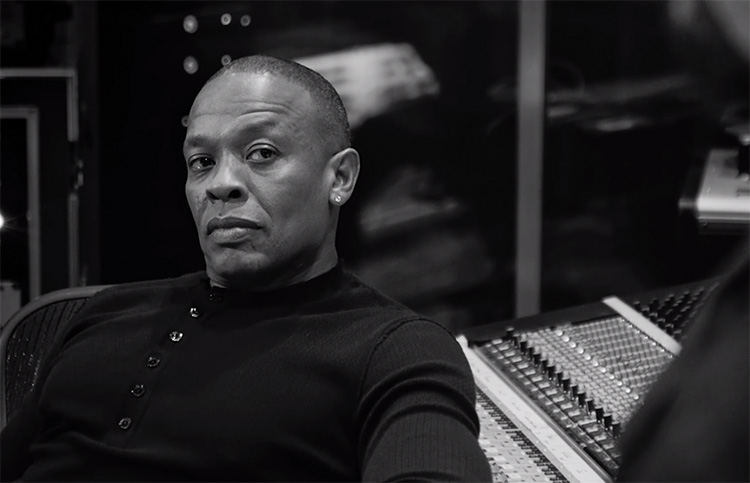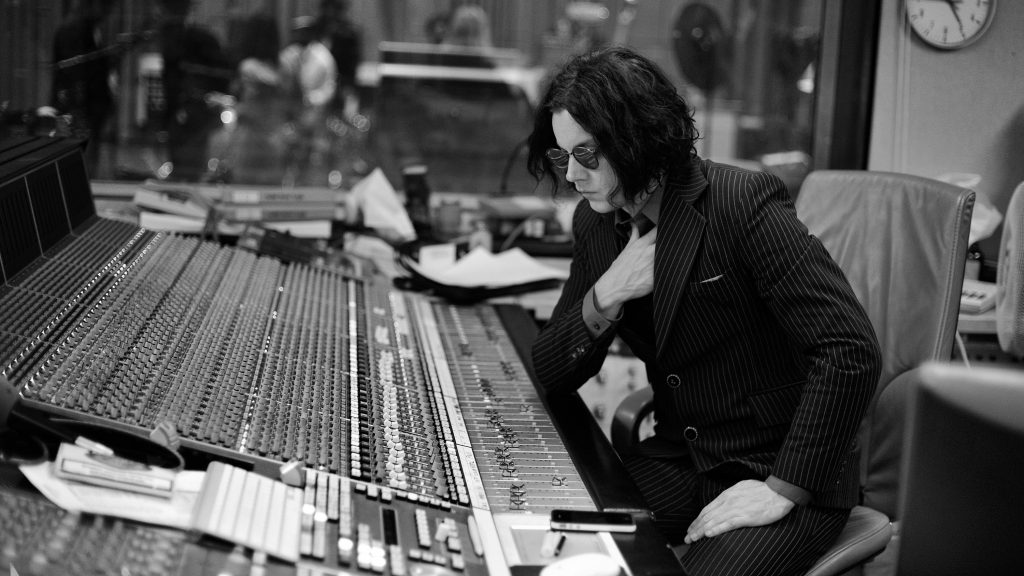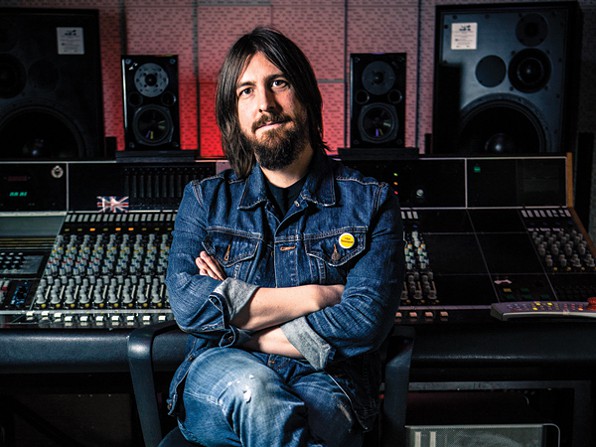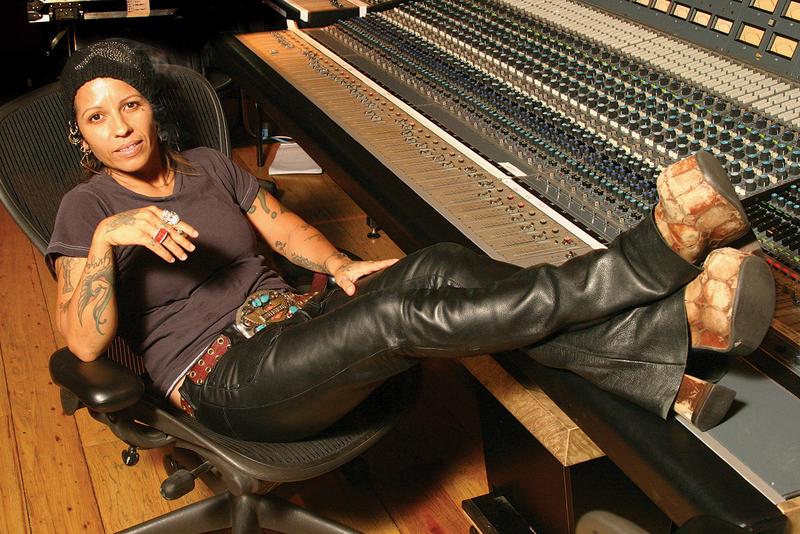So, you’ve found the perfect producer for your upcoming recording project. Great news. Now the producer sends over a 10-page contract full of legalese regarding record royalties, songwriting splits, SoundExchange revenues, producer advances and more. Before you enter the studio, here are some key points to look for and understand:
1) Who Owns the Masters?
First and foremost, you should own the master recordings once the producer fee is paid. In rare circumstances, the producer might own the masters or have some co-ownership interest, but that is definitely not the norm. Almost always, you should own the masters.
2) How Many Points for Your Producer?
It is industry standard for your music producer to receive “points” on the songs they produce. A point is simply a percentage of record sales. For example, 4 points equals 4% of net record revenues from the masters produced by your producer. My advice: make sure that there is language inserted that allows you to recoup all expenses related to the production and exploitation of the masters before these points kick in. In other words, until you recoup all of your costs in relation to the masters, the producer doesn’t start getting revenue. Industry standard is 2-5% for points, either on the suggested retail price (SRLP) or published price to dealer (PPD). See my article here for more on SRLP vs. PPD.
3) Should Your Producer Get SoundExchange and Other Revenues?
I find that more and more producers are demanding a percentage of SoundExchange revenues on songs they produce. The same goes for other so-called “direct monies” or “flat fee” uses of the masters (film/tv placements, etc.). This is mostly a reflection of the modern realities of the music biz, as “points” aren’t worth what they used to be. Not all producer agreements include SoundExchange/Flat Fee revenues, but if yours does, make sure the language is clear and the percentage is fair. Typically, a fraction is used: whatever producer points you agree on (let’s say 4 as per above) divided by the artist’s record royalty flowing from the record label (let’s say 20%). So in this example, 4 divided by 20 gives a 20% SoundExchange/Flat Fee percentage to the producer. My advice: if you don’t know what the label royalty is or don’t have a label involved, the standard practice is to use a “deemed royalty,” which is simply a royalty that you and the producer agree on that’s based on industry standards (somewhere between 15 and 20%). I would cap the producer’s SoundExchange/Flat Fee entitlement at a specified amount, nothing over 25%. Obviously, lower is better for you as artist.
4) Is Your Producer a Co-Writer of the Compositions?
This is perhaps the most important point to consider: is your producer a co-writer? See my article here for guidance on such a determination. I recommend that you have this discussion as to whether you intend to co-write with the producer before recording commences. I realize that sometimes co-writing just happens in studio, whether you plan for it or not, but it’s wise to discuss this ahead of time to ensure mutual expectations going in. My advice: If the producer is indeed a co-writer, you need to ensure that they assign administrative rights in the compositions to you. This will allow you to use and exploit the compositions without having to obtain the producer’s signature in each instance.
Insider tip: this exact issue was taken to the Supreme Court of British Columbia in the late 90s, when Sarah McLachlan was sued by her former producer Darryl Neudorf, who claimed he was a joint author of four of McLachlan’s early compositions. The takeaway from the court’s decision: if an artist and producer intend to co-write together, that must be agreed to before the recording process commences. Otherwise, the court will assume that your producer is not a co-writer.
5) How Much Will Your Producer Be Paid?
The Music Producer Agreement should clearly define how much you are paying the producer, either per song or via an hourly rate. My advice: go with per song, otherwise you might be surprised by the bill at the end of the project. Typically, half of the producer’s fee is considered a recoupable advance against royalties payable to your producer. In other words, half the producer fee is considered a recoupable cost, and half is not. A typical timeline in terms of payment of the producer fee is half before recording starts and half upon completion.
Insider tip: the producer fee and producer points/SoundExchange entitlement are definitely intertwined. In other words, if you want to keep more of your royalties and SoundExchange (and can afford it), you can offer a higher per-song producer fee. The same goes the other way, if you are short on funds, you might be able to offer more on the other end. My advice: think big picture and long term, and don’t undervalue your catalog in the long term in exchange for a short-term break in producer fees.
There are many other important clauses in a music producer agreement, but this is a great start. As always, don’t hesitate to reach out with questions. My door is always open.







77 Responses
Well wriitten & well said, just plain excellent – thanks!
Thanks Joe!
Kurt Dahl
Entertainment Lawyer
Great article Kurt. Thx
Thanks Phil!
Kurt Dahl
Entertainment Lawyer
Great! Wow!! Thank you…
You’re welcome Deji
Kurt Dahl
Entertainment Lawyer
Hi! Thank you for these articles. I’m still a bit confused.
I’ve paid my producer upfront and then he asked for a percentage. I thought that meant via my PRO so I added him as a co-writer. But now he’s asking about owning the masters. So if he wants 5 points of the masters he shouldn’t also get 5% co-writing credit? We did NOT discuss a co-writing deal beforehand and he didn’t change the melodies and just took out a couple lines in one song and went to a minor chord at the end of a verse.
Also, where do I register these 5 points? On sound exchange or through my distributor?
Hi Rachel. If he didn’t help co-write the composition, he shouldn’t be listed as writer or get any songwriting revenues. It sounds like he produced the song, not co-write it. So I would remove him from the PRO registration and offer him 3 to 5 points on the master side of things. You don’t need to register them unless he asks for SoundExchange registration, then do that there. Otherwise, just report to him twice a year or whatever you agree on, with 5% of your net revenues from the masters.
Kurt Dahl
Entertainment Lawyer
Ok I just started a record label and I’m going to be releasing a single next week…I’m leasing a beat from a producer and it states that he will grant me 50% of the writers share of the beat…so my question is if the song must add up to 100% how much does the producer owns
I would have to see the agreement from his website Jay
Kurt Dahl
Entertainment Lawyer
Hi Kurt,
Axelle, here.
I have a question about composition and production that has always confused me until now.
I am a lyricist and I provide the melodies. Am I also a composer? Is the arranger the one who adapt an instrument to the melody I provide?
Many thanks
You’re definitely a songwriter. Whoever writes the music to your melodies would be considered the composer, and if someone else arranges the instruments for said music, they would be the arranger.
Kurt Dahl
Entertainment Lawyer
Thank you, Kurt! This article was very helpful to the mother / manager of a 16-year old singer/songwriter/musician who is currently beginning to record her first EP and who has sold a handful of songs to other artists for their EPs. This stuff is so confusing and without people like you to educate, I’d be lost. I still am actually, just less lost than I was before this article. Thanks, Denise Neeley
My pleasure Denise! Glad I could help
Kurt Dahl
Entertainment Lawyer
Hi, Kurt I’m a Producer/Songwriter. I was wondering is it possbile for me to waive Mechanical Royalty payments for Artists on a case by case for Controlled Compostions or is that required by copyright law? I’m the Co-Writer of the musical compostion as some times it could be a hassle for an Artist to account recourring payments that could continue on forever.
Where are you located?
Kurt Dahl
Entertainment Lawyer
Hi Denise. I’m just starting all this with my 16 year old and It’s all so overwhelming. If you are open to talking, please let me know.
Thank you!
Hi Kurt,
I read both of your articles on how producers can be compensated and the information given is what I have been looking for. Some questions I would like to ask deals with streaming. I sale beats online and in the pre-made contracts it states that I will receive or be paid 100% of mechanical royalties at the minimum of the statutory rate. With that being said, services such as Cdbaby, Distrokid, and Tunecore allow the artist to allocate the percentage a producer can receive for their contribution to the song when uploading to a streaming service like Spotify. Unlike SoundExchange, which allocates 45% to be distributed to featured artists,(i.e. music producers), who contributed to the creation of the song. So, my question(s) is would the percentage from SoundExchange, 15-25%, be the same for the other services mentioned or would it be the point system where a music producer will receive the standard nominal value per stream?
What I see often is that the producer gets a % of all “Direct Monies” that aren’t coming from a record label (film/tv placements, SoundExchange, etc). But it really depends on what sort of deal you negotiate with your artists.
Kurt Dahl
Entertainment Lawyer
Hi, Kurt I’m a Producer/Songwriter. I was wondering is it possbile for me to waive Mechanical Royalty payments for Artists on a case by case for Controlled Compostions or is that required by copyright law? I’m the Co-Writer of the musical compostion as I’m the guy that makes all the beats and some times it could be a hassle for an Artist to account recourring payments that could continue on forever. Heres the following clause I have in my Producer Agreement.
7. MECHANICAL LICENSING AND ROYALTIES: All musical compositions or material recorded pursuant to this Agreement, which are written or composed, in whole or in part, or owned or controlled directly or indirectly by Producer (herein “Controlled Compositions”), shall be and are hereby perpetually licensed to Artist for the United States and Canada at a royalty per selection equal to Producer’s share of the Song multiplied by one hundred percent (100%) of the mechanical statutory per selection rate (with regard to playing time) effective on the date of initial U.S. commercial release of the masters concerned hereinafter sometimes to be referred to as the “Per Selection Rate”. Notwithstanding the foregoing, with respect to foreign sales, the royalty per selection shall be equal to one hundred percent (100%) of the minimum statutory mechanical royalty rate as established by the mechanical rights society having jurisdiction over the territory in which records are manufactured.
i. Notwithstanding the foregoing, all mechanical royalties payable to Producer hereunder shall be paid on the basis of net records sold.
ii. Artist shall account to Producer, on a quarterly basis and pay royalties to Producer, if any, within thirty (30) days of the end of each quarterly period beginning. Artist shall send such accounting with payment, if any, to Producer at Producer’s mailing address. In the event Producer’s address changes, Artist shall have no obligation to send the accounting and royalty payment to any other address until Producer shall give to Artist in writing such new address.
Hi Emmanuel,
I have seen deals where the artist waives the payment of mechanical royalties, but I would advise that you hire a lawyer to review the clause in the context of the entire agreement.
Thanks
Kurt Dahl
Entertainment Lawyer
Thanks info as I think I figured it. I did create the agreement myself from a template that was written by a Music Attorney which is basically a Producer Agreement between an Independent label and independent Record Producer that’s hired as an Independent contractor. Basically what I did, I stripped away all the Record Label stuff from the agreement, Such as recording cost, Artist Recording Agreement for Points on an album, and replaced Employer with Artist, boosted the statuary Mechanical rate from 75% to 100% for the Controlled Composition clause as the Co-Writer etc that composes the orignal music as well.
The agreement came with another Producer Royalty clause called Net receipts which is what I ended up keeping in that includes Sound Exhange royalties. I basically have the compensation setup as a recoupable Advance that goes against Points on the Album or EP based on the “Net receipts” model and not the tradtional SRLP model. Basically the Artist would keep books and accounting of record sales from their online Distributor such as TuneCore or Distrokid and they recouped back the money they paid me and then they start paying me record royalties from their distributor. I Audit the Artist books based on written notice for accuracy etc.
I see that you stated the Suggested Retail Listing Price. I heard that alot of labels are moving away from that model as alot of them esp independent labels have switched to the Net Receipts model due to decline in Record sales now that digital streaming has taken over. It would basically be impossible to calucate an Audio stream based on the SRLP.
Emmanuel
Hi Emmanuel,
I produce for independent artists as well, and would like a copy of your contract template for my business use. Would you be open to sharing it with me in a word doc (.doc) format? Possible?
Hello! I’m working on my first body of music, I have a couple questions:
My producer is saying that I’ll own the sound recording masters and he’ll own the production masters, after I pay him a fee, is that reasonable?
Also with this particular experience, I always come in knowing exactly what I want sound wise and I really instruct him and am Very involved with production, would his make me the co-producer?
Thanks!
Amber
There should only be one set of “masters”…not sound recording and production masters. That sounds confusing and not in-line with industry norms. Unless the producer created the beats and wants to use them with other artists — perhaps that is what he’s referring to. I guess I’ll need more info to give you proper advice Amber
Kurt Dahl
Entertainment Lawyer
I think your producer was talking about non-exclusive rights… coz if that is the case, like Mr. Kurt says that your producer can use the beat to other artist.
Kurt where can I find a sample of a well drafted agreement between an independent producer and a production company? I’m especially interested in how royalty terms are drafted.
Not sure Valerie but I can help draft something for you. “Well-drafted” and “online sample from the Internet” don’t go together that well from my experience. And I’m not being facetious.
Kurt Dahl
Entertainment Lawyer
I would be interested in a well drafted agreement between Producer and Music Artist, Can this be achieved by Friday? How much will it cost?
Email me and I can send a quote for you 🙂
Kurt Dahl
Entertainment Lawyer
Would you please reach out to me about Producer contracts. I would like to work with an attorney to have my standard agreement created. I have a template I am using from online. Thanks
Email me please and thanks
Kurt Dahl
Entertainment Lawyer
Hello kurt_dahl, I noticed some text strangely blocking some of the other text on this page, just above the insider tip underneath #5. I was able to highlight it and realize it says,
“Remote control vibrators
Online Bookmakers
Allungare il pene”
I am in no way bothered by this, I actually think its hilarious, but I’m curious if you are aware that the text is there? Certainly I am not the only one experiencing this. I noticed it in two different browsers. I just need confirmation of this cuz it’s got me DYING laughing over here!!
Thanks for the article btw, it helped me out(:
Wow that is weird and thank you for pointing it out. Obviously had no clue. Got my website guy working on it. Some messed up spam, thanks for letting me know
Kurt Dahl
Entertainment Lawyer
Hi Kurt,
I am currently working with a manager to producing/writing a track for an artist. He has just now asked if I could send through the songs stems for them to work on further. This is without us having any agreement laid down. Should I be careful for this or no? And how should I approach about this? – They are a pretty respectable mgmt but I just want to be sure!
Thanks!
Yes, definitely get a Producer Agreement or something similar in place first before sending the stems. That is totally normal and fair of you to request.
Kurt Dahl
Entertainment Lawyer
Thank you for your contributions to music and helping new artists navigate this industry. I am independent artist that is strictly focused on ownership. I’m working with producers and that is always the first thing I mention before working together, just so we are all clear. I pay the producers up front for the beats for exclusive rights. My question is, when I’m registering the songs to Ascap, regardless of the agreement, do I still add the producers info ? Even if I own the music now. Secondly, I mentioned owning my music to the most recent producer and she mentioned she was fine with selling the beats to me for exclusive rights but wanted to engage the basic producer split . Isn’t the point of me buying the beats for me to own? Or does that mean I still own the music , even if they receive a split . How does that work?
Do you have written agreements with your producers?
Kurt Dahl
Entertainment Lawyer
Hello Kurt, I was given a proposal from a popular independent artist, but with no recording budget, at 20% net receipts on the master and 50% of publishing for the song.
Is this a good deal for me as far as points? Please advise.
Thanks!
I’d have to see the whole proposal and the wording used!
Kurt Dahl
Entertainment Lawyer
We have a producer, on the level that would like to do video ans produce a beat for us. What contracts do we need to cover these request in out best interests.
We have a producer, on the level that would like to do video ans produce a beat for us. What contracts do we need to cover these request in out best interests.
A producer agreement and then something simple that covers the video, like a Contractor Agreement. I may be able to help depending on where you are. Shoot me an email.
Kurt Dahl
Entertainment Lawyer
have a question regarding contracts in general. i’m a producer working with a friend who is a rapper and he buys my beats & we’ve just been making up contracts as we go per song but not really deciding who gets what royalties & where when it comes to PROs, soundexchange, etc. still unsure of how we would specify all of these percentages in a contract. would appreciate any help
A lot depends on how much each of you is contributing to the songwriting, but it is quite common to divide things 50/50 if you’re creating the music and he’s creating the lyrics.
Kurt Dahl
Entertainment Lawyer
This is very interesting! Hi Kurt, I sent you a private email with a question – I would appreciate hearing from you, thanks!
Hello Kurt, my daughter is a songwriter in Michigan and recently hired a producer for a new single. His brief contract mentioned publishing rights. He asked for 50%. Do producers usually get any publishing revenue?
Yes, if they are writing the composition. My guess is this producer is providing the music or the beat, and your daughter is providing vocals/lyrics? If so, then many producers are asking for half of the songwriting, which entitles them to half of the publishing revenue. But I would have to see the agreement to give an opinion. Feel free to email it to me!
Kurt Dahl
Entertainment Lawyer
Hi Kurt,
Hope you are safe and healthy during these times! Thank you for your great article and being available for questions.
Here comes mine:
I’m a music producer and I’m in the middle of negotiating a production agreement with an artist and her management team.
I’m supposed to deliver six master recordings without any payment upfront.
I have to cover all the studio recording, mixing and mastering costs. I also will be cowriting substantially and performing everything on the songs besides her singing and lyric writing.
We already worked on one song and basically what ended up happening is that she was in the studio for six hours laying down vocals, while I worked on the track for two months.
She wants to own 50% of the master recordings and parts of the writing/publishing.
Her reasoning is that it gives her management team a better chance on getting a distribution/label deal for her.
In my opinion and I might be wrong, she should get only the regular artist percentage of 15-20% on the master recordings. Writing/publishing should be 50/50.
I believe admin right for 12-18 months to shop for a deal is fair.
Thoughts?
Also, would I recoup my costs from her distribution/label advance or from the overall revenues?
Thank you very much in advance.
Cheers,
Andy
Hi Andy
Some in-depth questions here. I’d have to know more, as these are big questions that need to be handled correctly via an agreement. Email me to discuss further.
Kurt Dahl
Entertainment Lawyer
Hey Kurt,
What is your process to review a contract that I have?
Hi Sean – email me and we can go from there.
Kurt Dahl
Entertainment Lawyer
Hi Kurt
I have agreed a production fee for 3 tracks
The agreement states the ‘Producer Will receive 10% net receipts once we have recouped our investment ‘ ie .the production fee
Does that sound reasonable
Masters will be our property
Thanks
Lucy
Sounds reasonable Lucy, but we always must take into consideration the level of the producer (and your level as artist), the price paid per song, etc etc. But if you can deduct all your expenses in calculating Net, that sounds reasonable.
Kurt Dahl
Entertainment Lawyer
Hey Kurt
My business partner and I are sound engineers and we’re starting a production company. When we have artists come in to discuss paperwork should we have them sign a royalty agreement and a production agreement? Or will the production agreement take care of all of our needs?
A properly drafted Production Agreement should cover everything. But make sure it’s well drafted! Feel free to email it to me for an opinion.
Kurt Dahl
Entertainment Lawyer
Hi Kurt,
great insightful article. I am a producer and songwriter. I am currently working with a singer from Canada ( I am from the UK) and I have written and produced a song for him to sing and release. In this case what type of agreement do I need to draft and does he get a royalty split for singing the track if he has not written the song?
Hi Renee. If he strictly sang and did not write, than I wouldn’t say any songwriting accrues. But you need some sort of Producer Agreement or Collaboration Agreement (call it whatever you like) that outlines master revenue splits, ownership rights, etc. I can draft. Email me. Especially if it’s a good track…get it in writing first!
Kurt Dahl
Entertainment Lawyer
Thanks Kurt, useful to know I’ll drop you an email. cheers
Hi! I write my own lyrics and purchased the exclusive rights to an instrumental that was posted in Beatstars website. No collabs.. Hence, I record my vocals over the beat sold to me. I am stuck at submitting my song at CDBaby or other distributors. I have a contract that states I give them credit for their work by acknowledging them as a composer and that I own 100% publishing rights. If that is the case, how do I put in percentages of both the lyrics AND music category portion of submission? And how do you credit putting the producers name in an album? I reached out to my producers but to no avail.. Any info helps as I am very new to this and figuring stuff out on my own… Thanks!
Also, I have another dilemma… I purchased exclusive rights to an instrumental by email through an agreement, not necessarily a formal templated contract. He sent me the stems in agreement that I have 100% publishing rights which I told him it’s binding after I pay for the beat, which I did.. But the problem is, this Seoul Korean based producer sold the exclusive rights to another person after he sold it to me.. Am I able to sue if he is located out of the country? This happened more than a year ago because I did not know what else to do. I have all conversations saved as proof of everything that I stated here. Or is this a lost cause? Lesson learned…
Hmm – I’m not familiar with registering with CD Baby as it’s been so many years since I’ve done it.
Kurt Dahl
Entertainment Lawyer
Do producers get paid when a client makes an inquiry about their services? I’m curious as I have spoken to a producer about working with my artistes and upon deciding not to use his services he sent a vague message relating to him being paid for answering the questions I had about his services.
I would say that’s a hard no!! Laughable really. Send him to me if he invoices you 🙂
Kurt Dahl
Entertainment Lawyer
Hi Kurt,
I’m in the process of buying a beat from a producer with exclusive rights to the track, I’m paying him a fee for the track although he is requesting for 50% publishing rights even though he only composed the beat and no involvement in writing . Does this sound normal ?
Also just wanted to confirm that in this instance the artist should have full rights the the masters of the song right ?
If the producer created all of the music (i.e. the beat) and you did the lyrics, then yes, that is quite common for them to ask for half of the songwriting (based on the presumption that music and lyrics make up 50/50 of the songwriting). So you want to make sure that you love the beat before you proceed with this! And depending what you pay, you should have full rights on the masters. But read their terms closely.
Kurt Dahl
Entertainment Lawyer
Hi I need help I paid producer for the beats which I played some part on how they shud be and others I had the melodies and paid for studio sessions aswell and the lyrics and how I sang I took full control of that he helped there ND there but the work was done by me so I want to ask which title I get on the album when I register the album as an independent artist
I would have to see the Beat Agreement!
Kurt Dahl
Entertainment Lawyer
This is all great information. Would you consider adding a female producer to your photos? (Linda Perry, Nova Wav, Wondergurl…etc) The idea that this is still exclusively a mans world in 2021 is perpetuated by these kinds of eliminations. We are out there, if rare.
This is a great point, fixed! Thank you for pointing it out to me Coco 🙂
Kurt Dahl
Entertainment Lawyer
Hi Kurt! I just found your website! Thank you for such great info. I have a couple questions I am wondering if you could help me with.
1) I am writing and producing my own songs and am moving towards sync licensing. I am a member of BMI. Do I need my own publishing company (this is how it worked in the 80s when I was doing this)?
2) A former music student and I reconnected and I want to help her (she is 20 years old and is a bit lost as far as her moving forward in her music career). About a week ago we began (long distance and virtual) collaboration on a song she started writing. I am offering melody and lyrics on the song. I will lay down tracks for her (produce this for her) and when she flies out here, she will lay down the vocals with me. I am a seasoned musician/songwriter/producer, and I also have a teacher’s heart. I want to help her and am now realizing we need some sort of contract/agreement. I need protection since I am not charging her upfront. Can you advise me?
Thank you so much!!!
Hi Kathi. You definitely do not need your own pub co. Without one, your pub revenues and rights would flow to you personally through BMI etc. The only reason you would need your own company is for tax benefits and for limited liability, as things really start to grow.
RE your student – sounds like you need a Co-Writer Agreement! Email me, happy to help
Kurt Dahl
Entertainment Lawyer
Very insightful and helpful knowledge.
Thanks Amina!
Kurt Dahl
Entertainment Lawyer
Hi Kurt,
Don’t know much about the producers but my dad wants to put out an album and his producer said he wants 65% and my dad will get 35% for the music he wants to release. Is this right?
That sounds horrible
Kurt Dahl
Entertainment Lawyer
Hello,
I engineered, produced, and financed about 85% of a deceased artist masters. I was never credited nor fully compensated for any of my work or investments while he was living. I have registered the sound recording copyright. There was no written agreement. What percentage of ownership should his estate have?
That is all a matter of negotiation and contracting! I would look to what was discussed between you and him while he was alive (emails, texts, etc).
Kurt Dahl
Entertainment Lawyer